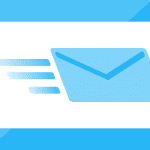The power of data has single-handedly changed the spectrum of how this world works. We no longer live in the era of phone calls and fax machines, we live in the information era. The information era is a boon to mankind only until we know to take care of our data. We have all that we will ever need at the tip of our fingers, we can work remotely, we can even survive a pandemic with the power of information. Our mobile phones are getting smarter than us, and we are left with nothing to do but run behind technology in an effort to keep up.
Advanced technology and problems
The more advancements come up in technology, the more problems pop up side by side. In spite of being thankful for mobile phones, tablets, and laptops that have made our lives easier, we now live in constant fear of hackers, viruses and malware. We live in the constant fear of waking up and finding that our laptop has been corrupted or all the files erased irretrievably. This fear is not unjustified, every day millions of people are faced with such predicaments. Their mistakes were not deliberate, in fact, it is often something as mundane as opening a mail from an unknown sender or clicking on a lottery link. But regardless of our intentions, our simple mistakes can cost us a lot, both emotionally and financially.
Having so intimately understood the power of technology, we must also understand the dangers that accompany that power. Emails are an important part of our day-to-day life, we use it for personal and official purposes. It is the mecca of all our information. Often we do not give as much importance to safeguarding our emails as we should. It is imperative that we protect the most vulnerable source of our data bank, following are the valid security measures to protect email safe from viruses:
1) Saving ourselves from clickbait
Do not under any circumstances open mails from unknown senders or click on links given in these emails. Often such clickbait emails are viruses in disguise, and once a person clicks on these emails, it automatically forwards itself to all the contacts in that person’s mailing list. Downloading any attachments from these mails can also cause damage to the laptop and lead to theft of personal data. It is advisable to always scan any attachment for malware before downloading it.
2) The dangers of phishing emails
Phishing emails have become problematic to deal with because such emails are packaged neatly to attract and fool people. The intent of such emails is to gather personal data from the user of that mail. Once the hackers have some basic information about their prey, they install backdoors on the computer of the user to steal sensitive data. Such emails are sent in the form of coupons or messages from banks, asking us for details regarding our accounts. The easiest way to recognize phishing emails is to notice whether the mail has been addressed to us personally and to cross-verify.
3) Keeping the privacy of our mail intact
The importance and purpose of mails must be understood by everyone. It is us who misuse our mails more than any hacker can ever do. We fill out forms in malls, hoping to win the lucky draw. We practically give our mail ID to whichever site that asks for it on the internet, and also to people we do not personally know. Our mail IDs should be sacred, we must protect its sanctity, the more unwanted people know it, the more our mails are vulnerable to virus attacks. In fact, sharing our phone numbers with people is less dangerous than casually sharing our mail IDs.
4) Turning off the auto-download feature in mail
Auto downloads are harmful for our mails and computer. As the word auto-download suggest, any attachment or file that we receive in the mail will automatically download and the file will get saved in our computer. Not all the files we receive in our emails are safe. Some have viruses hidden in them and when we download such files it could harm the files in our computer and put all our data at risk. It is advisable to always double-check before downloading any external attachment. It would be better if we can scan such files for possible malware or virus before downloading it.
5) Being careful with pop-up ads
The most frustrating deed about using the internet is the millions of pop-up ads that keep coming up no matter which website we use. Our emails are also prone to such pop-up adds. These ads are just viruses popping angrily on the screen, asking to be clicked on. The best way to avoid such ads is to either avoid them altogether or close them. It is advisable to close pop-up ads in the taskbar as clicking on the ‘x’ does not close the ads. Pop-up ads are designed in such a way that to click on any part of the ad, even in the close symbol, leads to the opening of the ad.
6) Verifying our emails
Another way to ensure that virus doesn’t affect our mails is to verify our emails at all times. We must always make sure that we know the sender or the purpose of any particular mail before opening it. This is the best way to weed out unwanted emails or mails that could have viruses. Some people have the tendency to check all the emails they receive, even the ones that have gone to spam. We should avoid such mistakes, spam emails must never be opened, it should be a habit to delete spams without even opening it. It should also be noted that if we are not aware of the source of a said email, we must not forward it around to other mail addresses. By being careless and forwarding mails, we might be participating in unlawful activities even though that was not our intention.
7) Unsubscribing from unknown mail IDs
We thankfully have the option to unsubscribe from emails we do not want to receive anymore. It is up to us to use this feature to our best advantage. Every business that forwards a mailer to our mail ID has an option at the end of the mail that gives us the choice to unsubscribe. We can unsubscribe from that particular mail if we are not interested. Doing this reduces our chances of being stuck with a virus in our PCs or laptops.
8) Having an email security system
Apart from taking all the measures, the most important of all is to have an antivirus software installed to manage the security of our emails. A comprehensive antivirus software will make sure that the files in our computer do not get corrupted through our mail. Most of the unpaid or free versions of the antivirus software are not effective. It is best to pay for the software and have it installed on our computers or laptops for better security. A fully-managed software solution that protects our mail end-to-end is the only plausible option to email security.
9) Email Encryption
We send hundreds of work-related emails on a day-to-day basis, and some of these emails might contain sensitive information. We must make sure to use email encryption when we are sharing sensitive information with someone else. Encrypting our mail prevents unauthorized networks and users accessing our data or snooping on it. The messages we send to other people can also be modified without our knowledge by a third party. Therefore, encrypting our emails helps us to be at ease that we are not being manipulated in any way.
10) Content Previews
Most of the email services have the features for content previews. When we recieve an email, we can view the contents of that particular mail without having to click on the email. Using this feature will help us in differentiating spam emails from genuine ones, and hence protecting us from the chances of having a virus attack on our PC.
Conclusion
Email security should be given primary importance when we think about securing our data. Our emails have not only personal data but also confidential data from our workplaces. We can always avoid such mishaps by being a little mindful and patient. Following simple steps like not sharing our mail IDs with everyone and not opening emails from unknown people can go a long way to ensure technological safety.
The best email protection is not any software, it is our own presence of mind. For example, we can also prevent ourselves from the clutches of hackers by not using public Wifi networks. Public networks are privy to data manipulation. Anyone can easily snoop into our private laptops when we connect to a public network. This can be easily avoided if we have a personal internet dongle that we carry around with us. It is up to us to protect our emails, and safeguard ourselves from the dark alleys of the internet.


